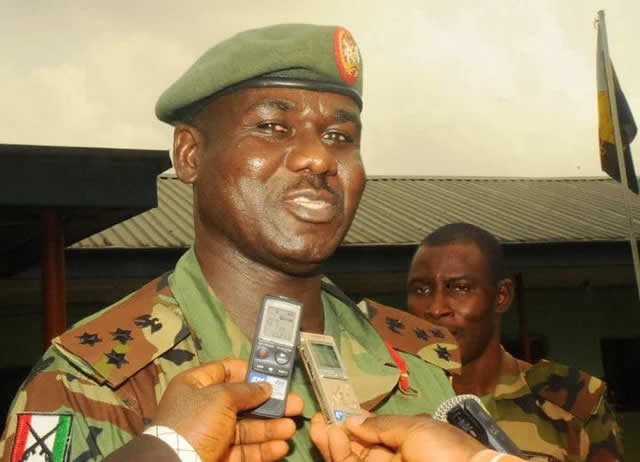
Again, the Chief of Army Staff (COAS), Lt-Gen. Tukur Buratai, has lamented what he called inadequate funding of the army. The COAS spoke when he received members of the Senate and House of Representatives’ Joint Committee on Army, who were at the Army Headquarters in Abuja, on November 14, in furtherance of their oversight function. He defended spending by the army, especially under his watch in the last three years, promising not to misuse whatever was allocated to it.
“But, permit me to say that, by and large, the efforts we have done within the past three years; we have achieved a lot. As you go round, you will see the efforts, with great difference in terms of facility development… But, there is still much to be done. The funding still remains a challenge. It couldn’t have been a challenge, if the various infrastructure had been maintained over the years”, he told his guests.
Lt-Gen. Buratai had similarly bemoaned the paucity of funds to maintain the army in February when he appeared before the Senate Committee on Army in Abuja, to defend its 2018 budget proposal. He said the inadequate funding was hampering effective maintenance of the army’s infrastructure across the country. Buratai had told the Senate committee: “let me quickly appraise the performance of the Nigerian Army’s budget for 2017. You will recall that since the beginning of 2015, the activities of violent non-state actors have aggravated in various regions across our dear country. In response to this, the Nigerian Army has expanded from five divisions to eight divisions, and is currently engaging in the war against Boko Haram and other internal security operations – virtually in all the 36 states of the federation.
“These commitments have extended our core constitutional roles and have impacted significantly on our human and material resources.” He complained about the effects of the inadequate budgetary allocation and partial release of funds on the army, soliciting the lawmakers’ assistance in getting more money for the army.
We may not be in a position to ascertain the veracity of the COAS’s claim about inadequate funding. But no one can contest the fact that military operations have increased in magnitude and scope beyond their core mandate, especially in recent times because the Nigeria Police Force lacks the capacity to adequately secure lives and property. In a sense, therefore, there could be some merit in Buratai’s call for more funding for the army.
But then, we cannot blame the government for being careful in releasing money to the army, especially in view of our recent experience where military chiefs became billionaires overnight by converting the funds meant for their units into their personal property. Although some of the matters are in court, the point is that significant recoveries had been made from some of the generals who allegedly embezzled arms funds.
So, the ball goes back to the National Assembly, precisely to the joint committee on the army. We cannot afford to starve the army of needed funds, especially in a time like this when our soldiers have been spread thin, having been saddled with the arduous task of internal security alongside their core mandate. At the same time, we must ensure that the kind of pilfering that characterised the immediate past in the military does not recur. What is needed therefore is a delicate balancing to get the best for the country.
The joint committee has a major role to play in this, by ensuring that funds allocated to the army are judiciously spent. That is the essence of its oversight function. It was either the absence of such oversight in the past, or collusion between those who were saddled with that aspect of the job and the military chiefs that made it easy for the corrupt generals to be so brazen in their illegality.
END

Be the first to comment